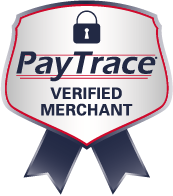Tracking and Understanding Customer Conversion
Where outside vendors are concerned, businesses want to know what they’re paying for. This is an unending problem for marketers, who can’t reliably offer an expected return-on-investment. Marketing returns are never guaranteed, and in the digital realm, their value can be even more challenging to illustrate to managers and owners who aren’t particularly tech-savvy.
Given these challenges, AdWords’ new conversion tracking features are a major win for all parties, and a potential revolution for digital marketing. If AdWords can make its new system work–Google is still testing the technology–marketers could soon be able to identify in-store business purchases that were inspired by digital marketing campaigns.
This would allow companies to see exactly how their digital presence is driving in-store business. That’s a huge opportunity for companies that rely heavily on brick-and-mortar sales and don’t yet see the value of digital marketing–think plumbers, laundromats, restaurants and so on. Meanwhile, marketers would better understand the value of a conversion and be able to set pricing accordingly–and with some better assurances of the potential returns.
Enter the Third Party
The way AdWords is hoping to track conversions from the screen to the store is by utilizing the data of third parties. Many third-party companies specializing in retail and consumer data have access to mountains of information covering tens of millions of consumers. Those companies can use the various data gathered to build profiles of individual consumers based on various identifying information they use online.
Those third parties can then make the identifying information anonymous and assign a number to that character. Then, when a customer uses a credit card, email address, phone number or other identifying information online, AdWords can hand that information over to the third party, and they can determine whether the transaction was the result of any digital marketing influence.
If the third party finds a match, AdWords can mark that down as an in-store conversion for digital efforts.
Gaining a Clearer Conversion Picture
The benefits of these insights cannot be overstated. While steering clear of any privacy concerns related to consumer information, AdWords will be able to introduce a different metric within its current conversion tracking tools. Users can then distinguish between these different types of conversions to see what kinds of conversions are being initiated, and where. Users can already distinguish a transaction conversion from other types of conversions, such as whitepaper downloads. But soon, they might also be able to distinguish between a digital transaction and an in-store transaction.
Google has taken small steps toward such services by developing a click-to-call feature, which makes it easy to track online searches that lead consumers to call a store and possibly make a conversion. But that current feature would pale in comparison to the much broader tracking capabilities of the new system.
For Businesses, The Benefit of Digital Becomes Clearer
The problem with tracking conversions is that they aren’t always immediate. Consumers may visit a website, do product research elsewhere, hem and haw and mull over their options before finally making a purchase days or weeks later. These delayed purchases are tough to track–and impossible, if they end up occurring in a physical store.
Businesses would benefit greatly if they were able to follow these drawn-out consumer paths to purchase all the way from the computer to the transaction. Any kind of business could have the potential benefits clearly illustrated, and because digital marketing would be utilized to drive in-store business, there would be no type of company or industry that could honestly say digital marketing doesn’t serve their interests.
The future of digital marketing is quickly evolving and creating new ways for businesses to thrive. If you’re ready to leverage these opportunities for your own business, contact DBC Digital to start today.
Greg Sherwood is CEO of DBC Digital, a marketing agency based in Denver, Colorado. With over 30 years of marketing experience with traditional and inbound (internet) marketing, Greg helps mid-sized businesses get a better return on their marketing dollars.
You can reach Greg at (303) 357-5757 or at dbc@dbcdigital.com


